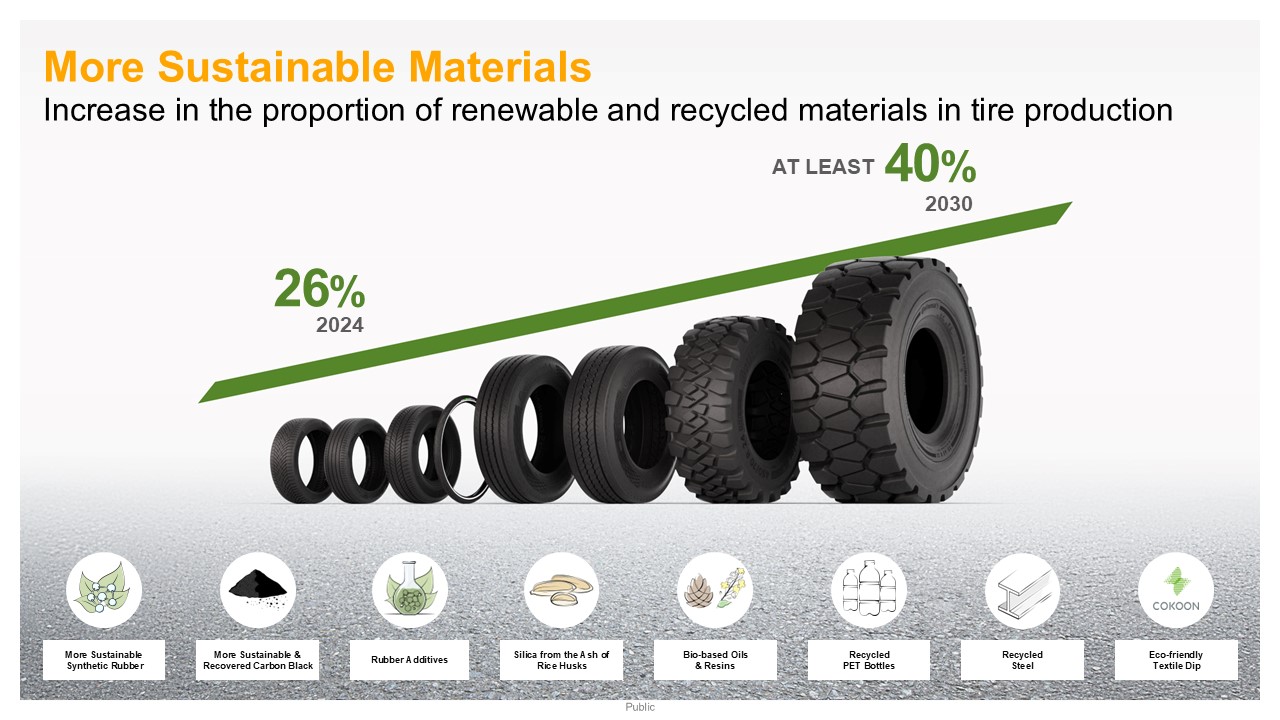
Continental is expanding the use of more sustainable materials in tyre production, including synthetic rubber made from used cooking oil and ISCC PLUS mass balance-certified circular resins. The manufacturer says renewable and recycled content averaged 26% in 2024 and should rise by 2–3 percentage points by year-end, with a minimum 40% target set for 2030. The programme spans raw materials, additives and traceability across multiple plants and markets.
Continental’s material mix for sustainable tyres now includes synthetic rubber from recycled cooking oil and pyrolysis oil, alongside responsibly sourced natural rubber. The company plans a steady year-on-year increase towards at least 40% renewable and recycled content by 2030. Continental car tyres can contain up to 100 raw materials and as many as 20 tailored rubber compounds per article, so scaling certified inputs at plant level is central to progress.
“We’re closing the loop: Continental is ramping up its commitment to a circular economy and mapping out its path for the future,” said Jorge Almeida, head of Sustainability at Continental Tires.

Synthetic rubber supplements natural rubber in tread compounds to balance grip, rolling resistance and braking. Continental is increasing the share derived from more sustainable sources, such as used cooking oil and end-of-life tyre pyrolysis oil. Feedstocks are supplied by partners including Synthos and TotalEnergies Cray Valley under ISCC PLUS mass balance, allowing certified attributes to be allocated to outputs while meeting the same performance specifications.
Circular resins help tune elasticity and resilience, improving wet grip, abrasion resistance and rolling resistance — all crucial to sustainable tyres. Continental says it already uses ISCC PLUS-certified resins from suppliers such as TotalEnergies Cray Valley. The company has also adopted an ISCC PLUS-certified TMQ (Vulkanox HS Scopeblue) antioxidant from LANXESS, which life-cycle assessments indicate has a carbon footprint more than 30% lower than conventional TMQ, without changing compound performance.
Continental is scaling certified inputs using the ISCC PLUS mass balance approach, which mixes fossil, renewable and recycled materials in production and tracks them via audited bookkeeping across the value chain. This enables site-specific increases in certified content over time and transparent documentation for procurement teams. For background on mass balance and claims control, see ISCC’s explanation (external, no-follow).
“The mass balance approach enables us to efficiently manage the complexity of the raw materials portfolio and track how these raw materials are used at multiple production sites in a wide range of markets,” said Matthias Haufe, head of Material Development and Industrialization at Continental Tires.
Tagged with: Continental, sustainable tyres, synthetic rubber, used cooking oil, circular resins, ISCC PLUS, mass balance, LANXESS TMQ, biocircular acetone, tyre manufacturing, recycled materials
Disclaimer: This content may include forward-looking statements. Views expressed are not verified or endorsed by Tyre News Media.